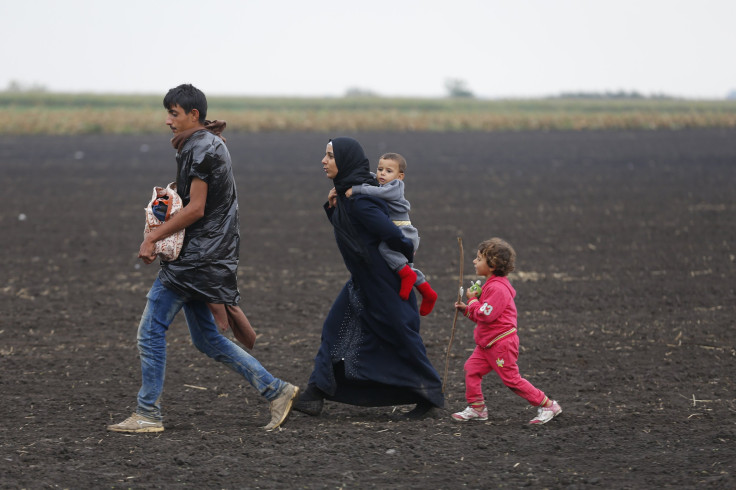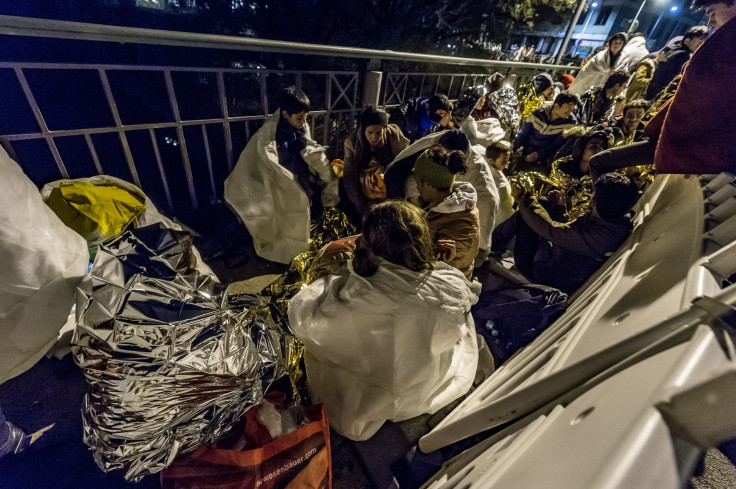Europe's Refugee Crisis: EU, Balkan Leaders Finalize 17-Point Plan To Tackle Massive Influx, Provide Shelters

Leaders of 11 European Union nations and three non-EU nations meeting in Brussels agreed on a 17-point plan to increase cooperation in managing the massive influx of refugees in the Balkan Peninsula. According to a statement issued late Sunday by the European Commission, the plan involves -- among other things -- the creation of 50,000 refugee reception centers in Greece and another 50,000 on the route through Balkans countries such as Macedonia and Serbia by the end of this year.
“Countries affected should not only talk about and at each other but also with each other. Neighbors should work together not against each other,” European Commission President Jean-Claude Juncker said, in the statement. “Refugees need to be treated in a humane manner along the length of the Western Balkans route to avoid a humanitarian tragedy in Europe.”
In addition to the creation of new reception centers, the agreement also paves the way for stepping up efforts to facilitate return of refugees that do not need international protection and speeding up repatriation of Afghan, Bangladeshi, Iraqi and Pakistani refugees.
Europe’s worst refugee crisis since World War II has so far seen nearly 700,000 people enter the region through the Mediterranean. Most of them have undertaken the perilous journey with the help of traffickers and smugglers, who have attempted to exploit the situation by ferrying refugees in overcrowded rubber boats.

In order to clamp down on human trafficking in the region, the EU and Balkan leaders also agreed to increase police and judicial cooperation, engage Europol and Interpol in Western Balkan route operations, and to scale up the Poseidon Sea Joint Operation in Greece -- particularly the EU’s border agency Frontex’s presence in the Aegean Sea.
The agreement comes in the wake of widening differences among the nations along the refugee route in the Balkans. Smaller countries in the region say that their resources are being stretched by the massive influx, even as bottlenecks have been worsened by Hungary closing its borders with Serbia and Croatia, forcing refugees to seek alternative routes.
Even before the release of the agreement, Croatia’s Prime Minister Zoran Milanovic reportedly dismissed the talks as “a waste of time.”
“Whoever wrote this does not understand how things work and must have just woken up from a months-long sleep,” he said, referring to the draft agreement, adding that the only solution to the crisis lies along the border between Turkey and Greece.
German Chancellor Angela Merkel -- who is facing political opposition domestically for her government’s open-borders policy -- also stressed on the need to continue negotiations with Turkey. However, the Middle Eastern nation has so far refused to cooperate, accusing the EU of trying to wash its hands of the crisis.
“We will not solve the refugee problem completely, we need, among other things, further talks with Turkey for that,” Merkel reportedly said ahead of the talks in Brussels. “Only with Turkey we can switch illegality to legality. It is very important that [European) Commission discusses further the migration agenda with Turkey.”
© Copyright IBTimes 2024. All rights reserved.






















